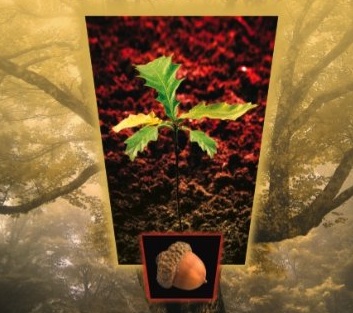 Some of the greatest researchers in childhood behavior (Jean Piaget, Erik Erikson, and Dr. Raymond and Dorothy Moore) agree that children pushed academically at an early age tend to burn out early in adulthood, or long before.
Some of the greatest researchers in childhood behavior (Jean Piaget, Erik Erikson, and Dr. Raymond and Dorothy Moore) agree that children pushed academically at an early age tend to burn out early in adulthood, or long before.
Young children do soak up learning like a sponge, but at what cost are children pushed into academic work too soon?
A hate of learning is developed when children are forced to perform at a young age, and becomes a huge obstacle to learning at precisely at the time when non-pressured young minds have the potential to be the most curious and inquisitive!
 And if children of a very young age soak up knowledge so easily, shouldn’t they be learning the most important lessons of love, work, and faith during their most formative years, rather than filling their heads with random facts and figures their minds are unable to yet comprehend?
And if children of a very young age soak up knowledge so easily, shouldn’t they be learning the most important lessons of love, work, and faith during their most formative years, rather than filling their heads with random facts and figures their minds are unable to yet comprehend?
By contrast, when a young person enters youth with a passion for learning and an increased level of emotional and neurological maturity, they can study long, hard and effectively with a deep sense of purpose.
They are able to make and keep commitments with an inner drive to excel.
How sad it is when we push little ones to the point of emotional exhaustion, and then expect not nearly enough from our teens. It’s absolutely backwards!
Children normally are not mature enough for formal school programs until their senses, coordination, neurological development, and cognition are ready.
Piagetian experiments have shown repeatedly that cognitive maturity may not come until close to age twelve. Interestingly, the ancient Orthodox Jews, known over the world for their brilliance, provided little or no formal schooling until after age twelve for girls and thirteen for boys when children were considered able to accept full responsibility for their actions.
Dr. Raymond and Dorothy Moore, The Successful Homeschool Family Handbook, page 44
One of the most significant differences between Leadership Education and other classical styles of education has to do with the belief that people, especially children, learn differently at different ages.
Thus, there are different phases for learning certain lessons.
When the The 7 Keys of Great Teaching are applied with the Phases in mind, it’s like hitting the sweet spot–less muscle, greater outcomes!
Click here for information on the Phases of Learning:
Other general articles on learning in the phases:
A Poem on the Phases
I am an acorn
full of potential, in need of nourishing
with sun and soil and rain
I sprout, upward and down
 I am a seedling
I am a seedling
surrounded by siblings
sending shoots and roots
I explore, grow and expand
I am a sapling
reaching for the sun
tall, trim, flexible
I yearn for more
I am a tree
roots diving deeper and deeper
my canopy spreads
I grow in strength and stature
I am a tree
standing in a forest of fellows
unique in purpose and place
I lift nests, and climbers
I am an oak
soaring above the valley
victor over fire and flood
I breathe life to all around me
seasoned, wise
Mostly, I raise acorns.
~Oliver & Rachel DeMille
[This poem appears on the back cover of Leadership Education: The Phases of Learning, by the authors]




























Leave A Comment